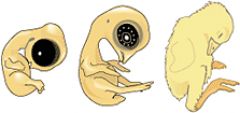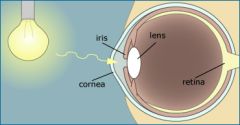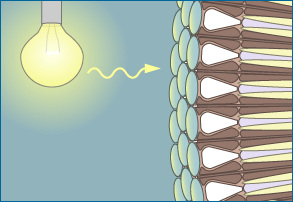Found 5 resources for:
development
An Antipodal Mystery
Grade Level(s):
- 9-12
- 13-16
Source:
- Herreid, Clyde Freeman
Resource type:
- Classroom activity
Time: 1 to 2 hours, ideally split over multiple class periods
Overview
The discovery of the platypus had the scientific world in an uproar with its mammal-like and bird-like features. How was one to classify the platypus? This case study uses this issue to model the scientific process, with scientists arguing, debating, collecting more evidence, and revising their opinions as new data become available.
View details >>
Evo-devo
Grade Level(s):
- 13-16
- Advanced
- General
Source:
- UC Museum of Paleontology
Resource type:
- Tutorial
Time: 20 minutes
Overview
Understanding the process of development can help us understand how some major evolutionary changes occurred and why others did not.
View details >>
Eye Evolution
Grade Level(s):
- 13-16
Source:
- UC Museum of Paleontology
Resource type:
- Online activity or lab
Time: 45-60 minutes
Overview
This worksheet guides students through an interactive online module entitled Why the Eye? on the Understanding Evolution website. Students gain a better understanding of the different types of animal eyes and how natural selection can account for the evolution of a complex organ.
View details >>
Webcast: Fossils, genes, and embryos
Grade Level(s):
- 9-12
- 13-16
- Advanced
- General
Source:
- Howard Hughes Medical Institute
Resource type:
- Video Lecture
Time: 60 minutes
Overview
In lecture three of a four part series, evolutionary biologist David Kingsley examines the original objections to Darwin's theory and shows how modern evidence supports the theory.
This lecture is available from Howard Hughes' BioInteractive website.
View details >>
Why the eye?
Grade Level(s):
- 13-16
- Advanced
- General
Source:
- UC Museum of Paleontology
Resource type:
- Article
Time: 30-45 min
Overview
Eyes are something of an icon of evolution. How did such an integrated, multi-part adaptation evolve? While many different animals have complex eyes, untangling their evolutionary history reveals both remarkable diversity and surprising similarity.
View details >>




